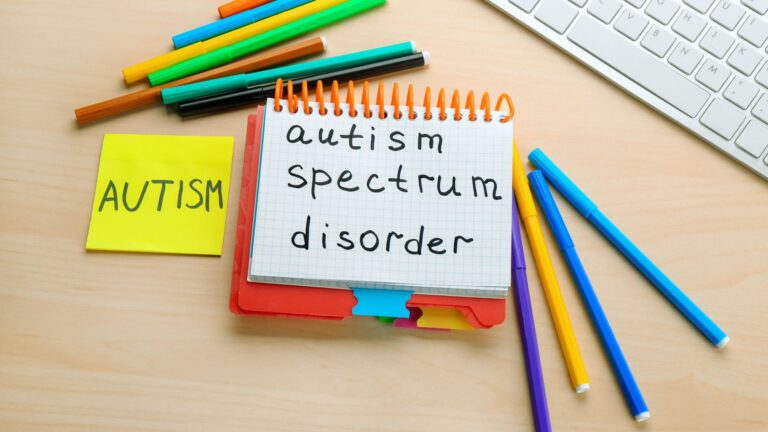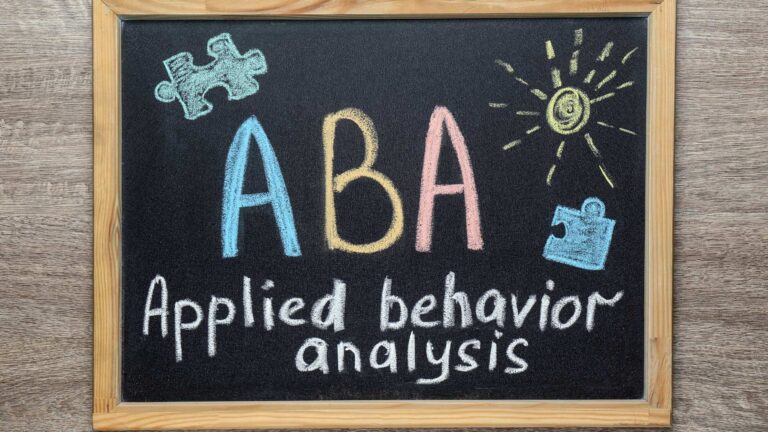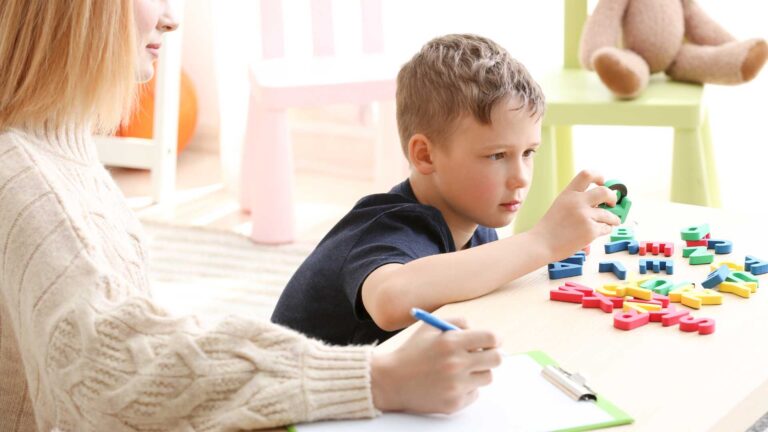Table of Contents
How Can I Include My Child on the Spectrum in Holiday Meal Preparation?
The holidays are often an exciting time of joy, togetherness, and creating lasting memories. For many families, holiday traditions frequently revolve around preparing and sharing extraordinary holiday meals.
For families of children and teenagers living with autism spectrum disorder (ASD), holiday meal prep can present unique challenges that neurodiverse families need to address before getting started.
However, it is a worthy undertaking as the activity is not only fun and festive but also encourages sensory exploration, joint attention, and other skill development. These benefits make it an excellent holiday activity for many neurodiverse families to enjoy.
Features of ASD, like sensory sensitivities, changes in routines, and picky eating, can sometimes present barriers to having fun during holiday meal prep, decorating, and other activities for some with the condition.
While not impossible to overcome, these traits can, at times, make it difficult for families to involve children with autism in the holiday events many enjoy. These issues leave many asking: How can I include my child on the spectrum in holiday meal preparation?
With careful planning and practical strategies based on applied behavior analysis, known as ABA therapy, families can make holiday meal preparation an inclusive and enriching experience for their loved ones with autism!
This blog by ABA Centers of Connecticut will guide you through the benefits of incorporating your child with autism into holiday preparations like meal prep. We will also offer effective ABA strategies to improve the process.
We hope this resource helps families, caregivers, and autism allies make the process of holiday celebrating smoother and more enjoyable for everyone.
So, keep reading to learn more about how you can make your holiday meal prep a success for kids with autism!
To learn more about ABA Centers of Connecticut, visit us here. To read other blogs about ABA, autism, and raising a child on the spectrum, click here.
Why Holiday Meal Prep Can Be Challenging for Kids with Autism
Before jumping into solutions for making holiday meal prep more manageable for children on the spectrum, it’s essential to understand some of the challenges this population confronts during the season.
The following ASD features explain some of their struggles:
- Sensory Sensitivities: The smells, sounds, and textures of holiday cooking can be overwhelming. These new stimuli may include sensations like the sound of blenders or unfamiliar food odors, which can over-activate a child’s senses and encourage them to avoid the kitchen.
- Changes in Routine: The holidays often disrupt regular schedules, which can cause anxiety for children who thrive on consistency. Abrupt changes can lead to behavioral outbursts or other complex expressions of behavior.
- Picky Eating: Many children with autism have specific food preferences and textures they avoid, leading to limited food choices and potential stress during holiday meal prep.
- Social Interactions: Group cooking activities or interacting with guests during meals might feel intimidating and nerve-wracking. For some, this can exacerbate social and communication challenges.
Being mindful of these challenges is helpful in turning them into learning experiences and new growth.
The Benefits of Holiday Planning and Festivities for Children on the Spectrum
While holiday meal prep can be challenging, it also presents many opportunities for children with autism to learn and develop new skills.
Research by Western Michigan University highlights several benefits of cooking for children with developmental disabilities (DD), including ASD, particularly in a group setting.
Planning and participating in holiday meals can help build valuable life daily living skills that include but are not limited to:
- Following Instructions: Cooking and baking provide new chances for children to follow directions, practice sequencing, and increase their attention span.
- Sensory Exploration: Cooking involves using different textures, smells, and tastes that can help desensitize children to unfamiliar stimuli.
- Communication Skills: Holiday meal preparation provides a natural setting for practicing communication skills such as requesting ingredients and interacting with others.
- Decision-Making: Involving children in meal planning and preparation allows them to make choices and develop decision-making skills.
- Creating Traditions: Holiday meals provide a chance for families to create meaningful traditions that promote a sense of belonging and togetherness, which can be especially important for children on the autism spectrum.
How ABA Enhances the Holiday Festivities for Many on the Spectrum
ABA therapy is a science-supported approach to understanding and modifying behavior in productive ways. ABA can be applied to holiday meal prep to help children with autism learn new skills, build confidence, and reduce stress during various activities.
In context to the holiday meal prep for children with autism, ABA therapy can help those on the spectrum learn skills like how to follow a recipe, set the table, and clean up after the meal.
ABA Tips for Improving Holiday Meal Prep for Children with Autism:
Here are some actionable ABA tips to involve your child in holiday meal prep:
1. Use Visual Supports to Plan the Day
Children with autism are often visual learners. Create a visual schedule of the day’s activities, including meal prep tasks and breaks. Use pictures or symbols to represent each element of the holiday meal prep activity.
For example, include visuals like:
- Picture of a pumpkin pie for “baking time”
- Picture of a wrapped gift for “present opening”
This structure sets expectations and helps your child feel more prepared for what’s to come.
2. Set Small, Achievable Goals
Break each task into simple steps. For instance, rather than asking your child to “make a salad,” start with smaller tasks like “place lettuce in the bowl.” Doing so helps them feel gratified throughout the holiday meal prep process.
Also, make sure to celebrate each completed step with positive reinforcement, whether it’s praise like a verbal “Great job!” or another preference like a sticker or extra screen time. By focusing on small wins, you’re building your child’s confidence and encouraging participation.
3. Create Opportunities for Sensory Exploration
Holiday meal prep offers a safe way to explore textures, smells, and tastes. Set up a “sensory station” where your child can safely engage with ingredients.
For example:
- Knead dough to strengthen fine motor skills.
- Smell different spices (like cinnamon or nutmeg) to explore new scents.
- Scoop, pour, or stir ingredients, enhancing hand-eye coordination.
To make it enjoyable, pair this sensory exploration with gentle encouragement or a favorite song playing in the background.
4. Practice Communication Skills
Holiday meal prep is an excellent way to work on communication. Caregivers can encourage an ASD child to request items or ask for help using their preferred communication method. Parents can do this verbally, using sign language or a communication device.
For example, parents could model the phrase, “Can I have the measuring cup?” and wait for a verbal or non-verbal response before handing it over. It’s also important to praise attempts for effort!
5. Plan for Breaks
While holiday meal prep can be fun, it can also be tiring or overstimulating. Schedule regular breaks where your child can retreat to a quiet space and take their focus off the task. Make sure there’s a calming activity like a favorite toy or book to help them recharge.
By balancing active participation with downtime, you can ensure your child remains regulated and engaged throughout the activity.
6. Invite Them into Decision-Making
Empowering your child to make choices during meal prep can foster a sense of ownership and pride.
Offer simple options like:
- “Should we make mashed potatoes or roasted potatoes?”
- “Would you like to cut out star-shaped cookies or tree-shaped cookies?”
Giving them input ensures they feel valued and involved in the process.
Compassion, Inclusivity, and ABA Support Can Make All the Difference During the Holiday Season!
By involving your child with autism in holiday meal prep, you’re creating an environment of compassion and inclusivity. With ABA strategies in place, you can set your child up for even more success and make the holiday festivities even better!
Remember to be patient and flexible, as every child with ASD is different and may have distinct needs and perspectives on what makes the holidays fun for them.
So, have fun this holiday season! Happy, inclusive cooking from ABA Centers of Connecticut!
More About Managing the Holiday Season with ABA Centers of Connecticut!
At ABA Centers of Connecticut, our experienced ABA practitioners specialize in supporting children and teenagers with autism through ABA therapy plans, diagnostic support, parent coaching, and more.
We work closely with neurodiverse families to build strong skills that prepare children for interactions both big and small, including festive holiday traditions! Because everyone deserves to have fun during these incredible seasons and all year long!
Contact ABA Centers of Connecticut today to learn more about our autism services via this online link by calling us at (844) 395-0448.
Together, we can help your family create joyful and inclusive memories that last a lifetime with the support of ABA.









